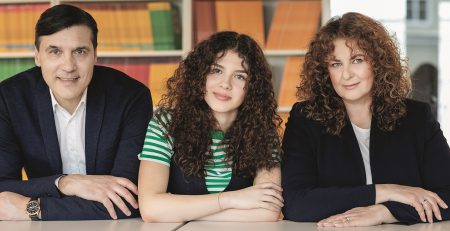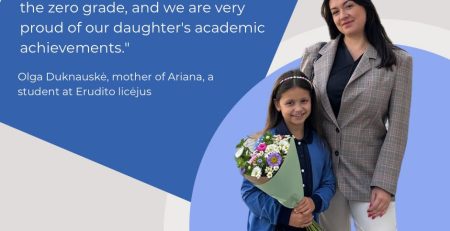Social pedagogue: Why is it beneficial for children to attend pre-school classes at school?
“Quality pre-school education is beneficial for the development and readiness for the upcoming stage of education,” says Kristina Trumpauskaitė, a social pedagogue at Erudito Licėjus. According to the specialist, pre-school education helps children develop social, emotional, linguistic, and cognitive abilities. Each family is unique and may have different priorities and expectations regarding their child’s education. It is important to consider the individual needs, maturity, interests, and emerging personality of the child.
The decision of which educational institution, kindergarten, or school offering pre-school education to choose depends on various factors. “If your child prefers a structured learning environment, the school’s pre-school class may be the most suitable choice,” says social pedagogue K. Trumpauskaitė. “Schools often focus more on academic knowledge and skills development. Schools may have greater funding, thus often offering better access to resources such as educational materials, facilities, educational support services for children, more options for additional activities, and other resources that can enhance the learning experience, help foster children’s independence, and provide socialization opportunities.”
According to the social pedagogue, it is also important to consider practical aspects such as distance from home, transportation options, and the child’s and family’s schedule. “For parents with older children already attending the same school, allowing their pre-school-age child to study in the same institution can be beneficial for fostering stronger relationships among children and convenient in terms of organizing drop-offs and pickups, as well as communication with teachers and staff,” says the speaker. Convenience and easy accessibility can greatly facilitate the daily life of the family.
“Pre-school education at school is also attractive due to smoother transition to primary education, which creates favorable conditions for the child’s adaptation to the first grade,” emphasizes the specialist. Children who have completed the school’s pre-school class are already familiar with the school environment, rules, and teachers, are acquainted with the school routine and expectations, and are already accustomed to wearing school uniforms, carrying backpacks, so they may find it easier to adapt to the primary education stage. Schools typically offer a structured learning environment with established schedules and routines, which can help young children develop important skills such as time management and self-regulation.
“In addition, children in school pre-school classes often have opportunities to interact with peers of various ages, which helps them develop social skills and prepare for future educational environments,” adds social pedagogue K. Trumpauskaitė, providing another argument for choosing pre-school classes at school.
Related articles:
Admission to pre-school class at Erudito Licėjus:














